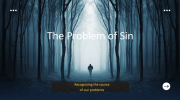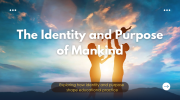Choose your language:
|
|
Articles on this page are intended to provide perspectives on education and the Christian school community and may be adapted from ACSI publications or other sources of interest.
The Hope of Christmas
As the season of Advent unfolds, Christian school communities are given a unique opportunity to pause and reflect on the true hope that Christmas brings.
Digital Citizenship Education from a Christian Perspective
The DCE framework defines three domains for development. What does digital citizenship mean for Christian schools whose mission is grounded in Scripture?
Strengthening Critical Thinking
Schools are often intentional about teaching worldview. Yet the way we teach can either nurture critical thinking or foster shallow habits of argument.
Education as a Restoration of Hope
Now for the good news: God’s plan of restoration through Christ as framework for how we think about education, leadership, and the shaping of society.
Recognizing the Problem of Sin
The foundational reality is the way sin impacts both teaching and learning. Education is always moral and spiritual, shaped either by truth or lies.
Education as an Affirmation of Identity
Here we explore one of the most pressing issues facing Christian schools today: how we understand and communicate identity and purpose.
Rediscovering the Glory of God through Education
We live in a universe crafted by the Word of God. This invites us to view education not as man’s attempt to impose meaning, but as an invitation to uncover meaning
The Crisis of the Modern Self
How can we as Christian school leaders address the decaying sense of identity in our students and in our faculty? Is there any help from God's Word?
A Stronger Future for Christian Education
Christian education in Europe faces growing challenges as societal norms shift and regulatory frameworks become increasingly complex.
The Purpose of Education
The hope of Christ-centered education is not in education as the solution, but rather in Christ as the solution and in education as a process to knowing Him and engaging in His world.











